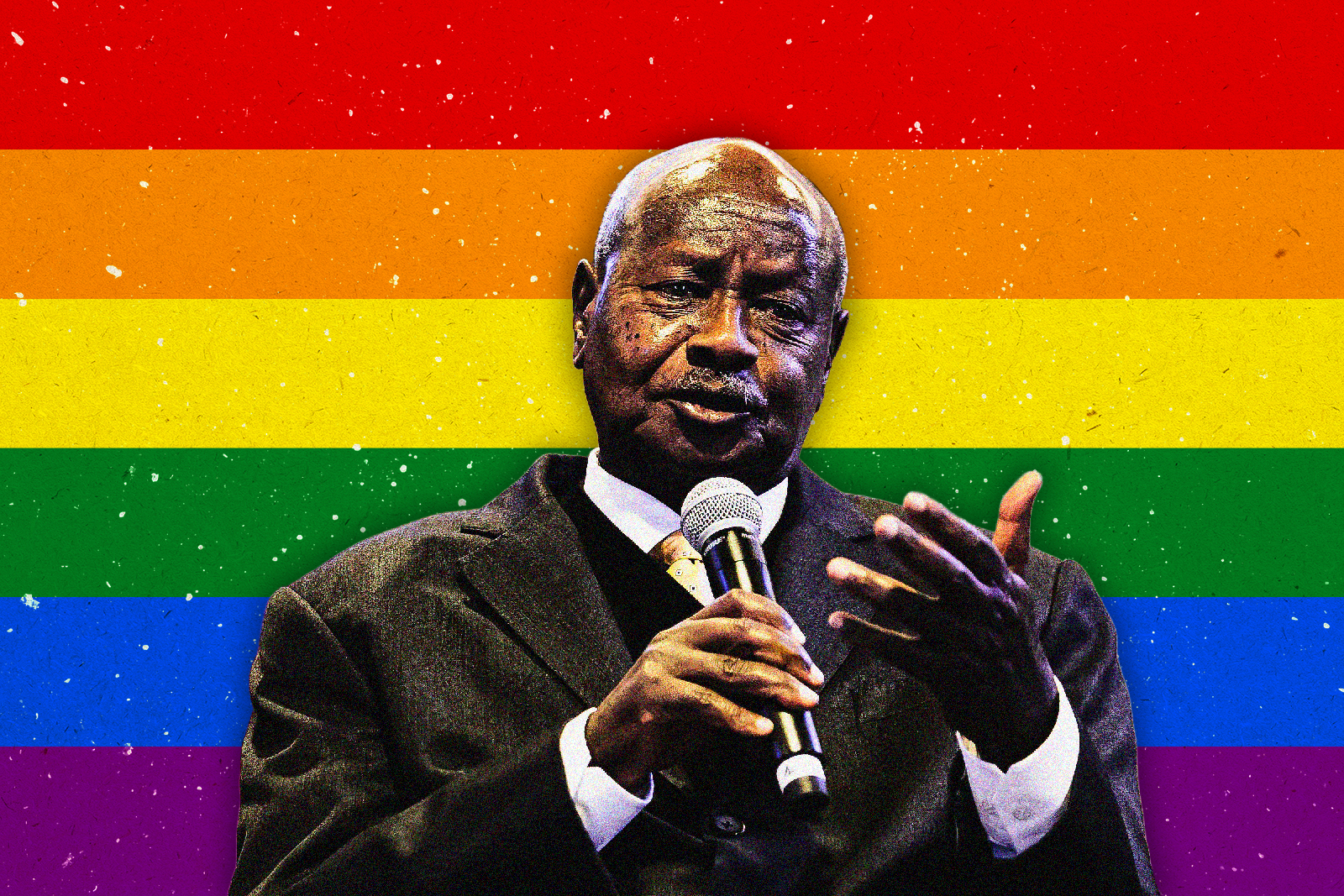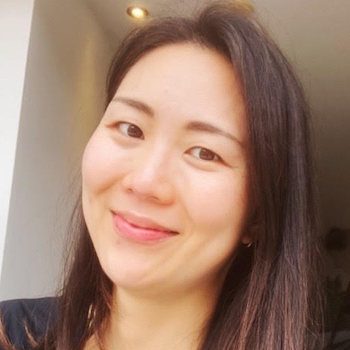
Leviticus Rising: The Origin of Uganda’s Anti-Gay Law
“It is ironic that an African dictator wearing a three-piece suit, caressing an iPhone, speaking in English and liberally quoting the Bible can dare indict anything for being un-African.” – Tamale
Sheila Hope began her story with reluctance: “It happened that day when nobody was home…” After being seen having an intimate relationship with one of her female friends, a male worker at her parents’ farm approached her and told her that she was “supposed to do these things with men, not women.” Sheila was raped and impregnated by the man. She was only sixteen. A report by Amnesty International shows that it is not unusual for lesbians to be “deliberately targeted for sexual violence” and that “some deem this practice ‘curative’ or ‘corrective’ rape” in Uganda.
The situation is no better for gay men. Two gay men in Uganda, Anthony Oluku (18) and Maurice Okello (22) were tortured and jailed for engaging in gay sex; they were caught in the act of having intercourse and “admitted to having been involved in the acts of homosexuality.” In consideration of Uganda’s new Anti-Homosexuality Act, the two men are now facing life-long incarceration.
In 2010, Uganda’s The Red Pepper published the names of 200 “Top Homos,” as well as their pictures, occupations, and home addresses. Subsequently, a woman was almost stoned to death by her neighbors and several members of the gay rights group, Sexual Minorities Uganda, were harassed and attacked. In February 2014, Uganda’s president Yoweri Museveni signed anti-gay legislation that forbids homosexuality as well as its “promotion,” mandating his citizens to report any homosexuals to the police.
Some African politicians assert that the very concept of homosexuality came from the West and that their traditional society had been gay-free. “Because we are a God-fearing nation, we value life in a holistic way. It is because of those values that members of parliament passed this bill regardless of what the outside world thinks.”
In contrast to their assertion, up until the 19th century, Uganda was under the reign of King Mwanga II of Buganda who had a male harem consisting of many young pages in addition to his sixteen wives. The British later dethroned Mwanga in 1888.
This paper will examine the history and culture of Uganda before the British colonization and how homosexual relationships had been embedded in Ugandan culture. The paper then demonstrates how homophobia was introduced first by the British and, more recently, by American evangelical Christians. Finally, the paper examines how the recent anti-homosexual law violates the Ugandan Constitution and international treaties ratified by Uganda.
Pre-colonial Uganda was accepting of homosexuality. For example, Feminine Langi men of Northern Uganda were called mudoko dako, and were wedded to other males, and King Mwanga II of Buganda, one of the largest kingdoms in Uganda, was gay. Sodomy was neither considered unethical nor sinful. Not only was same-sex intercourse not considered an abomination, some believed that a supernatural power stemmed from the conduct; male prophets, called zvibanda, chibados, quimbanda, gangas, and kibambaa, were considered to hold “powerful female spirits” that could be passed down to other men via anal sex.
Wilson Mutebi, a Ugandan bishop once stated that the “people who are saying that homosexuality is foreign are telling lies. They have not done enough research…” Same-sex relationships can be found throughout the history of Uganda. The misago women of Uganda refused to be wedded to men and pursued succeeding in their careers while being engaged in sexual relationships with other women.
Importantly, there is no pre-colonial record of hostility or punishment for those engaged in this custom, neither in Uganda nor in its neighboring states. As a matter of fact, in Uganda’s Iteso and Gisu communities, ceremonies were conducted where a “spirit” could transform men into women, and many loyal kings of early Uganda were infamous for filling their harems with both male and female pages.
The criminalization of homosexuals in Uganda originated from the United Kingdom. Their so-called anti-sodomy law gave police an excuse to arrest men who had shown affection to one another. Initiated in the 19th century, Britain attempted to “instill British morality into resistant masses.” Widespread homosexuality was deemed unacceptable. In 1894, Uganda formally became a British protectorate, and the laws of the United Kingdom, including those that govern same-sex conduct, were adopted in Uganda.
In October 1962, Uganda became an independent state and repossessed the right to alter legislation that hardly reflected their pre-colonial traditions and customs. However, the new government put little effort into re-installing its legal system. They have merely changed the name of the law to the Penal Code Act Cap 106. In fact, “apart from increasing the punishment of carnal knowledge against the order of nature to life imprisonment, the wording is exactly as it was in 1950.”
While it is true that the British initially planted the seed of gay condemnation in the early 20th century, Ugandan gay rights groups blame the current situation of anti-gay hysteria on Scott Lively, an American Evangelist who has actively preached against homosexuals in Uganda since 2002. As the founder of Abiding Truth Ministries, Scott Lively talked about ‘the gay agenda’ at Uganda’s three-day conference held in 2009. In Kampala, thousands gathered for the forum. Police officers, teachers, and even Uganda politicians listened to Evangelists explaining how “the gay movement is an evil institution whose goal is to defeat the marriage-based society and replace it with a culture of sexual promiscuity.”
A month after the conference, a Ugandan politician, who claimed to have Christian friends in the U.S. government, introduced the Anti-Homosexuality Bill of 2009, which included the death penalty for a “serial offender.”
In June 2014, the U.S. government levied sanctions on Uganda, asserting that its anti-gay legislation “runs counter to universal human rights.” The embargos include canceling military aviation practices, banning visas, freezing funds, and canceling police- and health-related programs. Further, the World Bank has stopped a loan worth 66 million euros, and Norway, Denmark, Sweden, and the Netherlands halted aid. Uganda’s minister Kutesa stated defiantly: “It is assistance, we need it, but if someone chooses to take it away, it’s their decision.” The law was soon found void by Uganda’s constitutional court holding that “The speaker violated the parliamentary rules of procedure by allowing the bill to pass without quorum.” Gay rights supporters rejoiced. The UN Secretary-General Ban Ki-Moon declared “a victory for the rule of law.” However, as long as the government is controlled by President Museveni, the parliament could pass such legislation again.
The preamble of Uganda’s Constitution states that the people of Uganda are “committed to building a better future by establishing…Constitution based on the principles of unity, peace, equality, democracy, freedom, social justice and progress.” None of these values are consistent with the Anti-Homosexuality Act of 2014. For example, Part II, Article 3 of the act states that if an offender is infected with HIV, he or she “commits the offence of aggravated homosexuality,” and is liable for life imprisonment. However, Part IV, Article 23 of the Constitution of Uganda provides: “No person shall be deprived of personal liberty…for the purpose of preventing the spread of an infectious or contagious disease.”
The legislation also punishes those who help homosexuals, stating that “a person who aids, abets, counsels or procures another to engage in acts of homosexuality commits an offense and is liable, on conviction, to imprisonment for seven years.” One of the members of Sexual Minorities Uganda received a letter from her landlord, which said in part: “You are a wonderful woman as well as a tenant who hasn’t given me any trouble…[d]ue to what is going on in the country…I am sorry but I think you are a depraved person who I can no longer tolerate in my house. I also cannot fight against the government.” This breaches Article 27 of the Constitution: “No person shall be subjected to interference with the privacy of that person’s home, correspondence, communication or other property.” Article 31 of Uganda’s Constitution also enshrines the “right and duty of parents to care for and bring up their children.” The Anti-Homosexuality Act does not exempt parents who aided, abetted, or counseled their homosexual children, and rather focuses merely on prosecution of the offenders. The act violates each of these constitutional provisions.
In 1995, Uganda ratified the ICCPR (International Covenant on Civil and Political Rights) without reservation. This law grants various rights to individuals including the right not to be subjected to inhumane treatment and the right to have peaceful assembly. However, on June 20th, 2012, the Ugandan government declared a ban on the NGOs that help promote gay rights. Subsequently, Simon Lokodo, Minister of State and Ethics of Integrity, ordered the police to put a halt to a meeting, held by a pro-gay organization, in Kampala. The Center for Constitutional Rights (CCR) has claimed that the government is violating “fundamental rights to speech, assembly, and association, as well as to be free from arbitrary arrest and detention.” This is also in violation of the Article 21 of ICCPR: “The right of peaceful assembly shall be recognized. No restrictions may be placed on the exercise of this right other than those imposed in conformity with the law and which are necessary in a democratic society in the interests of national security or public safety…”
The right to work and to make a living and the right to an education is protected by ICESCR (International Covenant on Economic Social and Cultural Rights), which Uganda ratified in January 1987. The legislation has forced many LGBT Ugandans into the streets. They have not only been evicted from their homes but also have lost jobs and have been deprived of medical treatment. A victim of this is Moses Walusimbi who was expelled from school due to his LGBT status. “It’s very hard to find a job because once they find out who you are, they will dismiss you and follow you. People will start pointing at you, which results in mob justice sometimes.”
Uganda was once a country which recognized and honored sexual and cultural diversity. Today Uganda is infamous for the ostracism and abuse of homosexuals. Despite the mandate of the Ugandan Constitution and the international human rights conventions it has adopted, the LGBT community is now imprisoned for having intercourse with their loved ones, shunned from their society and from their families, thrown out of their homes, denied education and even dismissed from their work.


